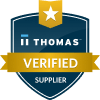The Importance of Non-Leaching Materials in Water Treatment Applications
Now that we’ve reached the start of summer, one thing that’s on most people’s minds is water. Whether you’re heading to the local pool or reaching for a cool beverage, this time of year, you can never seem to have enough water. But how can municipalities ensure the safety of their water?
Any water that’s accessed through a tap has already undergone extensive processing. Wastewater and drinking water treatment plants go through billions of gallons of water every day. But even as bacteria and contaminants are filtered out, there’s still a concern of other pollutants leaching into the water from the system itself. To combat this issue, it’s important for treatment systems to use non-leaching materials, including silicone tubing and seals. Even after the water reaches your home, there are several places where harmful contamination can be picked up from places in your homes. PVC, a commonly used material for piping and flexible tubing, has been known to leach concerning chemicals, and several countries in Europe are moving to ban its use wherever possible. Unlike metal pipes that can corrode or leach heavy metals into the water, silicone offers a safe alternative even when exposed to high temperatures.
And after processing, silicone materials are often used in other applications. In laboratories, for example, there is always a need for high-purity water for medical and scientific purposes. Any contamination at all could throw off results, so employing a system that won’t introduce foreign particles is essential. And of course, standard drinking water must also be kept clean to keep residents healthy. Recent headlines have shown the dangers of old water infrastructure leading to lead contamination throughout the country – which is why it is so important to take stock of all of the materials throughout the water supply chain.
Even in household filtration systems – including water and ice dispensers in refrigerators – any time water is being brought from one location to another, consider the materials being used during transport. Silicone is a safe material that can fill many roles in the water processing sector.










